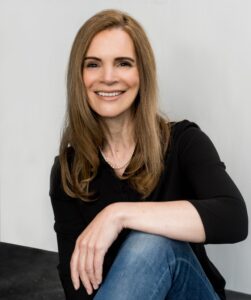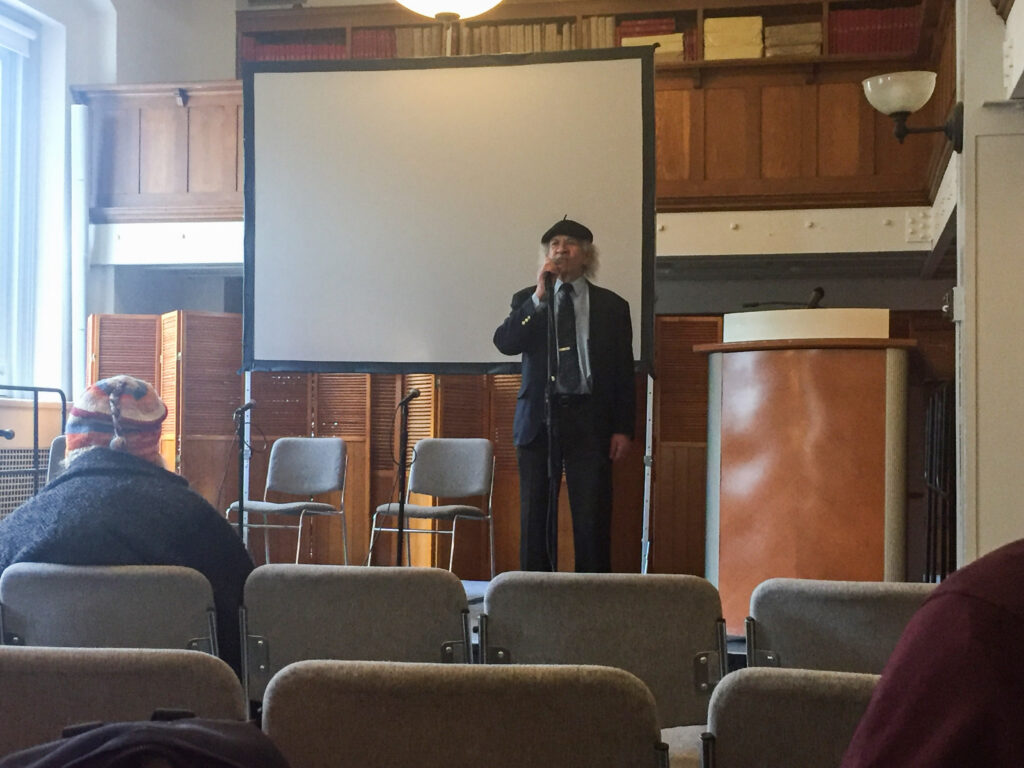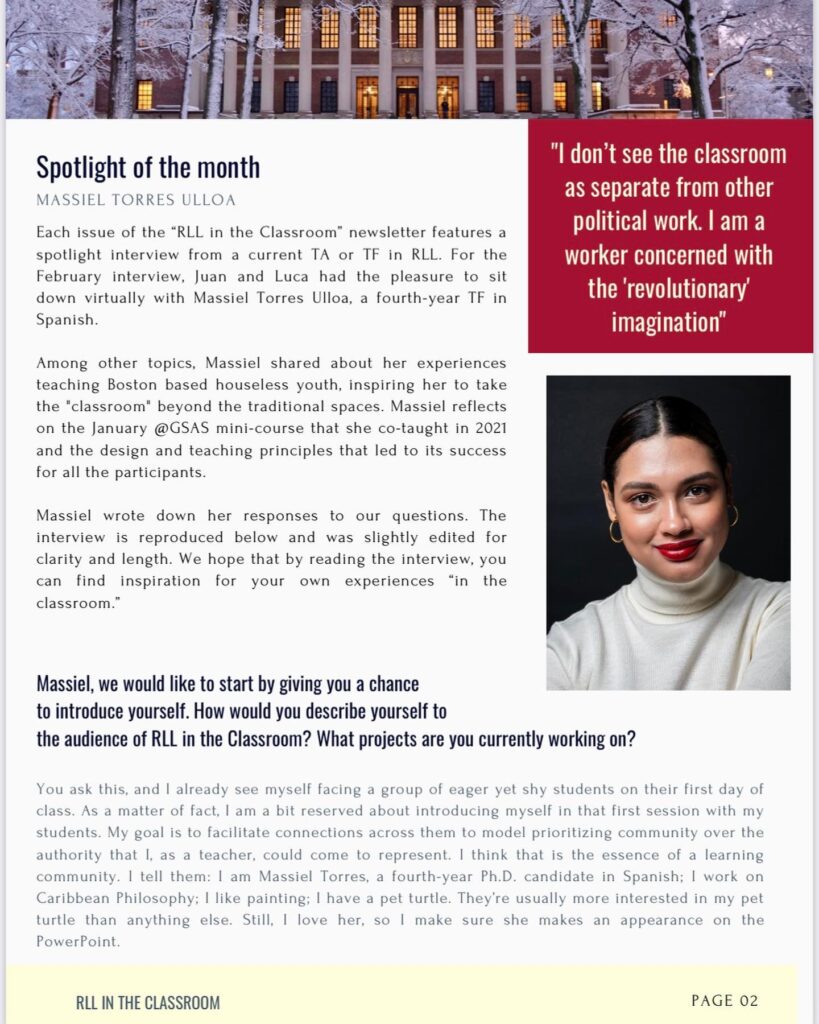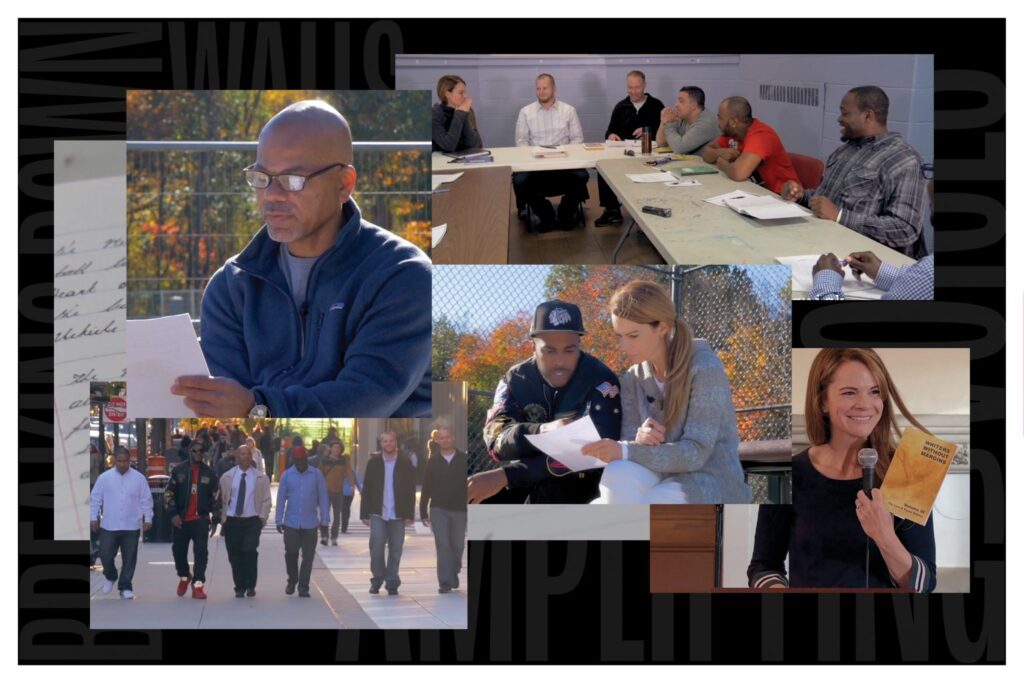To read this article in its entirety, please click here.
Emerson College’s alumni magazine looks back at the origins of WWM, as well as the inspiration behind the award-winning documentary, In Their Shoes
In December 2021, Emerson College’s alumni magazine published an article entitled, breaking down walls, amplifying voices, which features the origins of Writers Without Margins, the inspiration of the award-winning documentary film, In Their Shoes, and the ongoing ties between the organization and so many Emerson students and professors.
Click here to read the full article.
CHANGEMAKERS – Our very own, Cheryl Buchanan, opens up in an interview with the Scope Boston

In November of 2021, Northeastern University’s independent student newspaper, the Scope Boston, interviewed Cheryl Buchanan, founder and executive director of Writers Without Margins, about the ways writing and literature can nurture those who have experienced trauma.
“I feel like the more we allow people to be seen and heard, the more likely it is that we don’t have as much disconnect about real issues and can solve real problems.”
Buchanan says, one thing that separates us from either academia or another writing residency or writing institution is that we purposely try and immerse ourselves in the populations that we work with and maintain a responsible distinction of who we are and who we are not. We are not therapists. Even though some of our facilitators are therapists, they are not therapists when they are in their role as facilitators. Although they and we are likely to practice some exercises that would be considered art therapy or therapeutic, that is a subtle but important distinction.
You can find the whole article on their website at thescopeboston.org, or you can go directly to it by clicking here.
Flash Back – We pause and reflect on this moment at the Boston National Poetry Month Festival
We came across this article in the archives and wanted to share it with you all, as it acts as an eternal reminder of why bringing literature beyond the conventional space is so important to us. We hope you can agree.

The following are excerpts from an article written by Isabel Fenoglio of The Heights.
On a Saturday morning in mid-2018, Boston residents and poets gathered in the Commonwealth Salon at Boston Public Library to celebrate National Poetry Month. The event was hosted by the Boston National Poetry Month Festival and was part of a week-long series of events open to the public.
The next poets to take the stage were Zachary Alonzo and Marcel Harrison, two assistant facilitators from Writers Without Margins. Alonzo is a recovering heroin addict and convicted felon, recently released from state prison. Alonzo said poetry helped him overcome addiction, and that he plans to continue writing for the rest of his life.
Harrison is a recovering cocaine addict, who served 27 years in prison for robbery before being released on parole. He read a poem called “Don’t Just Survive,” which he wrote to cope with his past
To read the full story, click here.
Writers Without Margins Facilitator spreads a message of hope through music.
We’re pleased to share the powerful work of our facilitator, Math Love 101, in collaboration with Exit Fame, in this music video, “Drug Addiction pt. 1,” This is truly the fusion of art and advocacy.
Senior Kelsey Day Marlett works with her literary hero, Toni Bee, on poetry workshop that brings people together

Kelsey Day Marlett, a senior creative writing major, went from publishing her first book at 11 years old to co-teaching a poetry workshop, Visible and Visibility, with one of her literary heroes, Toni Bee.
Marlett became a published author before she became a teenager, when her children’s adventure book Pintus came out in 2011. Her first poetry collection, The Last Four Years, was published after she turned 18. Now, as a senior in college, her next book Rootlines is coming out on April 21.
“To me, poetry is about connection and trying to wrap human language around something that [is] ultimately unspeakable,” Marlett said. “Whatever this thing is that we’re all experiencing in life, whatever this sort of pulse is, poetry is about guiding the finger to the pulse.”

